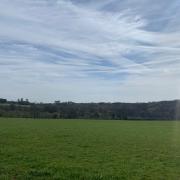
Cyprus has been divided since 1974 when Turkey invaded the north in response to a military coup on the island which was backed by the Greek government. The island was effectively partitioned, with the northern third run by a Turkish Cypriot government and the southern two-thirds by the internationally-recognised government led by Greek Cypriots. In August 1960 Cyprus became a republic but, in the following decades, it was plagued with violence between the Greek and Turkish communities. In 1974 a Greek military coup, which aimed to unite the island with mainland Greece, led to a Turkish invasion and the division of the island between Turkish Northern Cyprus and the Greek Cypriot Republic of Cyprus. Cyprus remains divided to this day.
There were fears among the Turkish Cypriot community that the Greek-backed military rulers would ignore their rights and press for unification for Cyprus with Greece. The Turkish made it clear they wouldn’t settle for anything less than the removal of the newly-imposed Greek Cypriot leader Nikos Sampson. In 1960, Britain granted independence to Cyprus under a power-sharing constitution between Turkish and Greek Cypriots, holding intervention rights over the island along with Turkey and Greece. In 1963, President Makarios raised Turkish fears by proposing constitutional changes which would abrogate power-sharing arrangements which led to inter-communal violence and Turkish side withdrew from power-sharing. In 1974, Military junta in Greece backed coup against President Makarios, prompting Turkish invasion and occupation of a third of the island which led to Greek and Turkish Cypriots fleeing in opposite directions.
My family are from Nicosia, the capital city in the Greek occupied area of Cyprus. My family speak Greek and generations have lived in Nicosia. Unfortunately, when Cyprus was invaded by the Turkish, several of my family members were killed whilst serving for the army which left my cousins without grandparents, uncles and fathers. The other half of my family who weren’t in the army had to flee and some immigrated to England in hope of safety whilst others who couldn’t afford to flee had to stay in Cyprus hoping that their houses wouldn’t be bombed and they would survive. When I go to Cyprus it is always very difficult to see Greek churches, houses and farmland destroyed by the war. I hope throughout the future that both sides of Cyprus will continue to be peaceful. Zoe Stocks says ‘I remember when my Aunt had to flee Cyprus due to the war and she came to live with us in England, it was incredibly sad to hear stories about what was happening and you feel helpless as your country and your family are suffering’.
Talks have continued since to try to reconcile the two sides. In 2004 a referendum was held on a UN plan to reunite the island - it gained support from the Turkish side, but was overwhelmingly rejected by the Greeks. Fortunately, Cyprus has been a very safe country since the war and the feud between Greek Cypriots and Turkish Cypriots have been kept at bay and they live peacefully alongside each other. Nicos Anastasiades of the conservative Democratic Rally won the February 2013 run-off election by one of the biggest margins for many years, promising to do whatever was needed to secure a financial package to rescue the country from the 2011 eurozone crisis. Mustafa Akinci, a social democrat, swept to victory in the Turkish Cypriot communal presidential election in 2015, promising to push harder for a peace deal in Cyprus. Both the Turkish and Greek Cypriots leaders have worked well together and kept Cyprus a peaceful country. 46 years later we remember the lives lost and how far Cyprus has come since then.


























